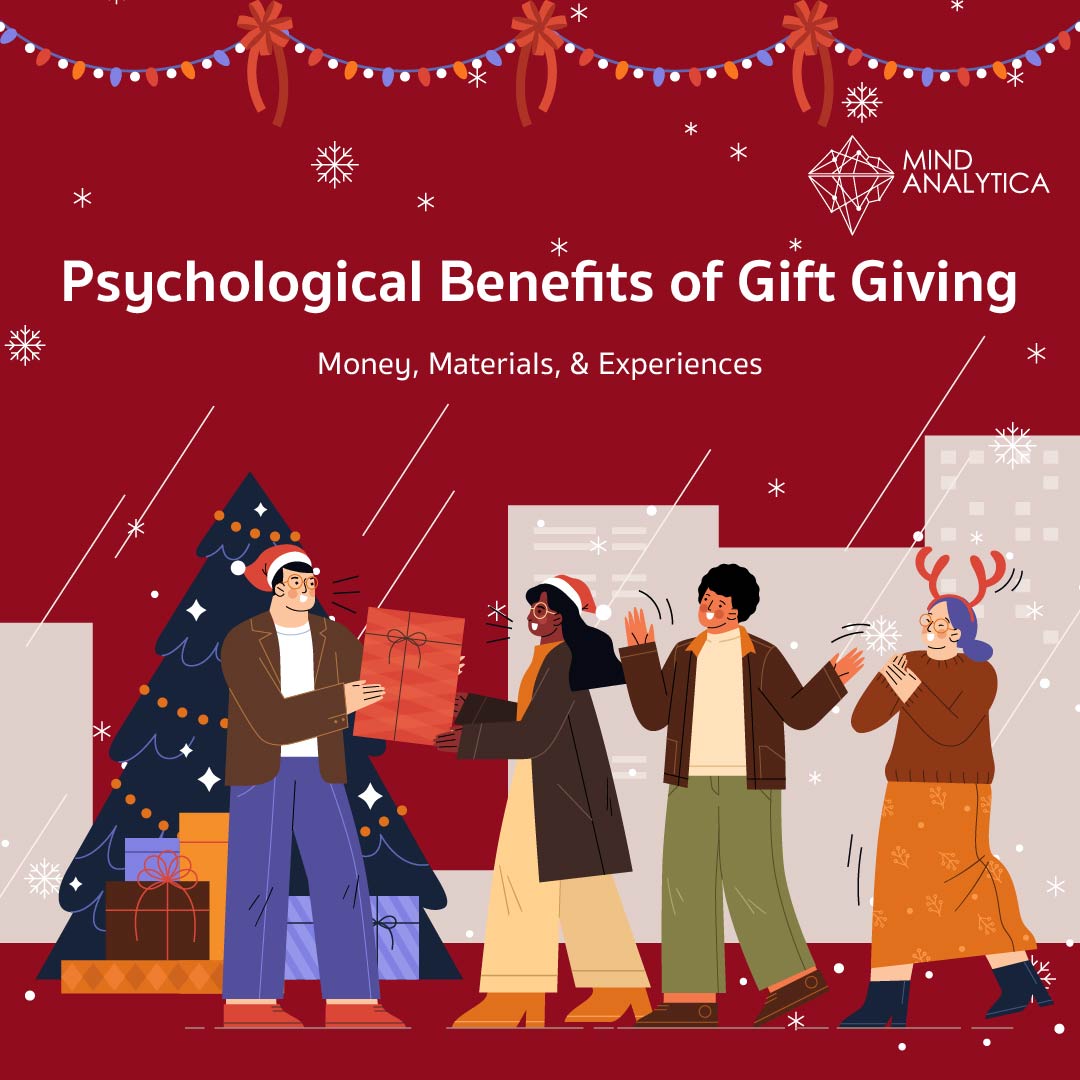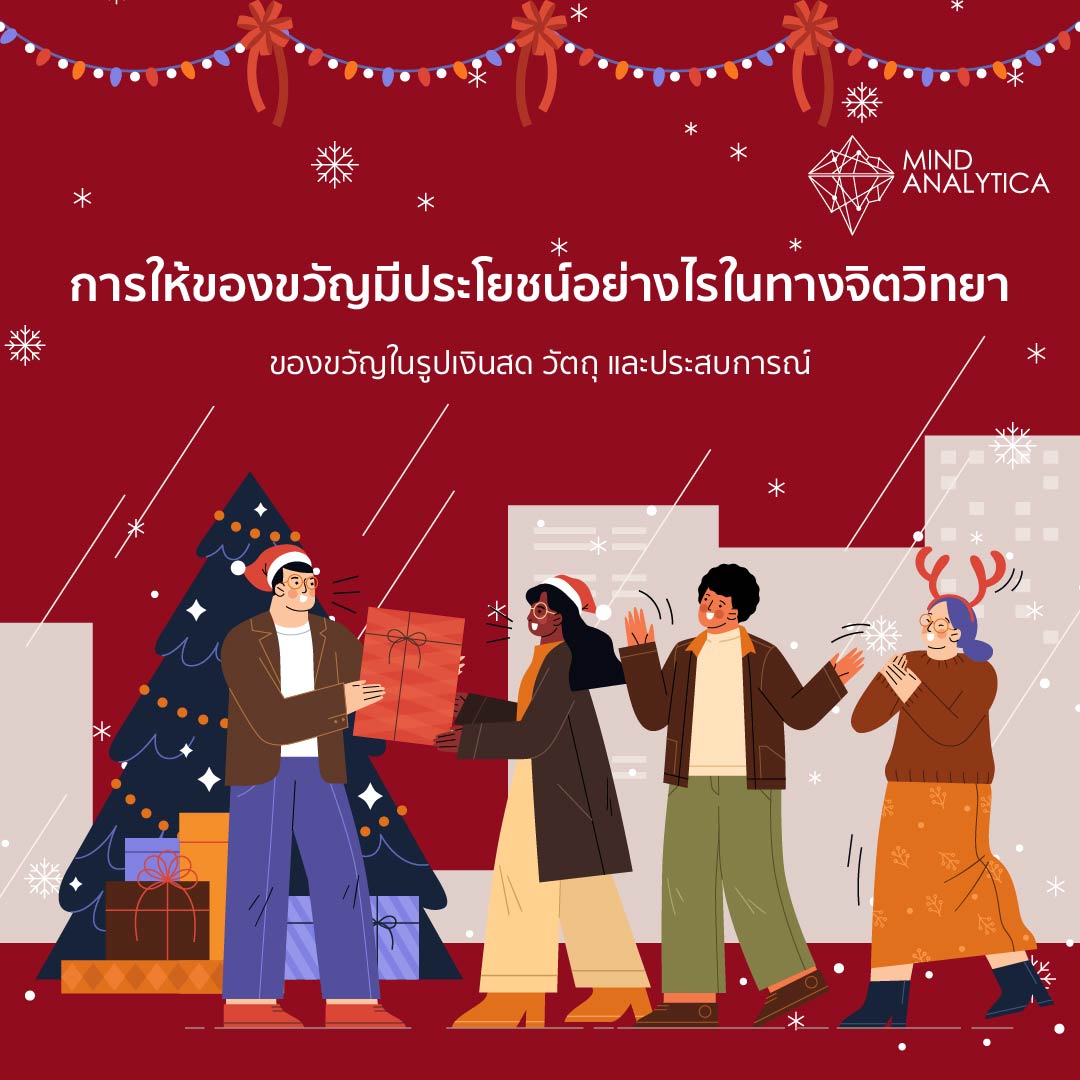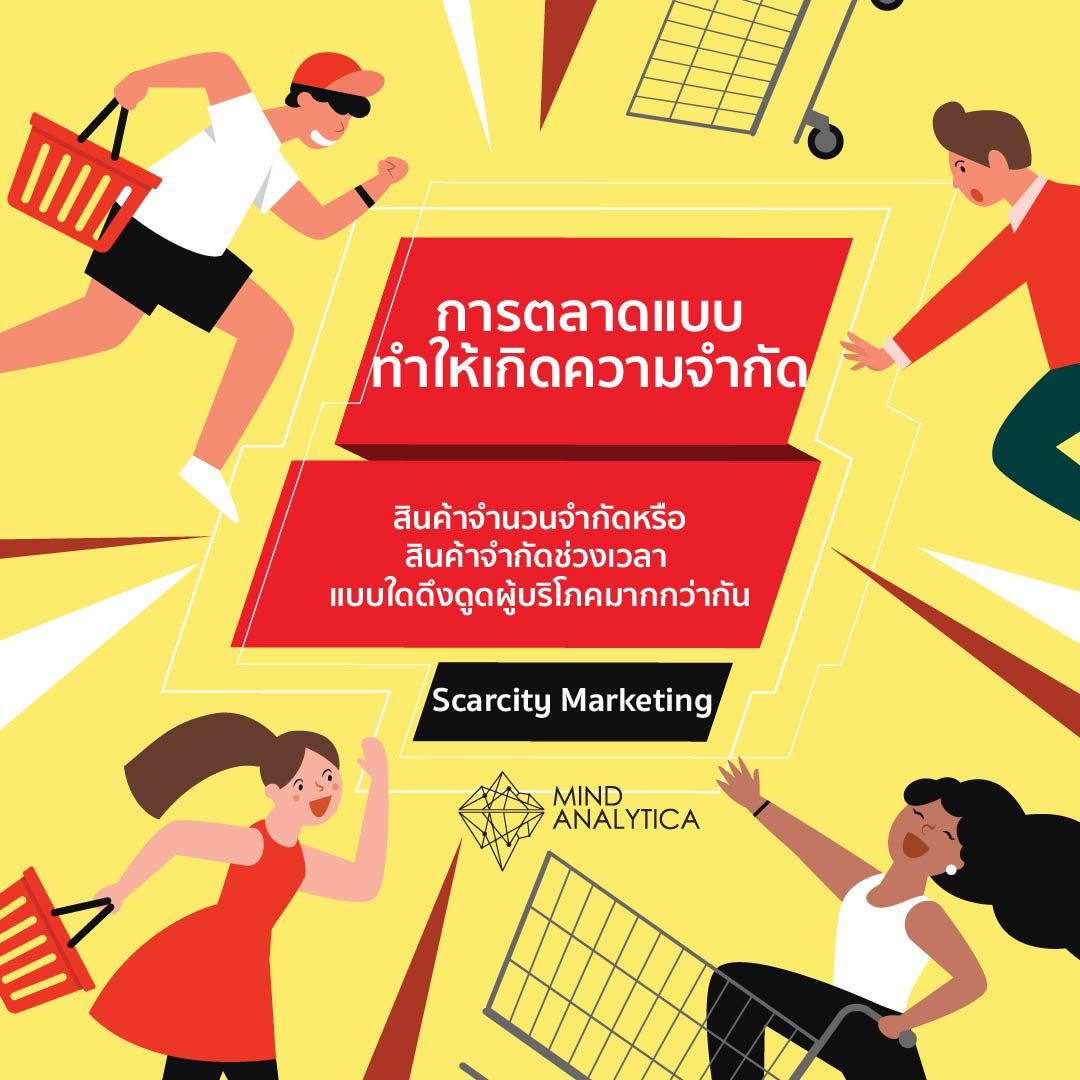Psychological Benefits of Gift Giving
25 ธันวาคม 2567 - เวลาอ่าน 5 นาที
Money, Materials, and Experiences
As the year draws to a close, a time when people enjoy warmth and joy with friends and loved ones, gifts become a meaningful way to express care and affection. Gifts hold significant value for both the giver and the recipient, fostering relationships and even enhancing workplace productivity. This article explores the psychological benefits of gift-giving across various contexts.
Materials vs. Experiences: Which Strengthens Relationships More?
Cindy Chan, a professor at the University of Toronto, and Cassie Mogilner, a professor at the University of California, studied whether material gifts or experiential gifts have a stronger impact on the relationship between the giver and recipient.
Experiment 1:
In a study involving 118 participants, each was given $15 (approximately 512 THB) to buy a gift for a friend. One group was instructed to purchase experiential gifts, such as fitness classes or movie tickets, while the other group bought material gifts like clothing, posters, or wine pourers. Results showed that recipients of experiential gifts reported stronger bonds with the giver compared to those who received material gifts.
Experiment 2:
This experiment examined whether framing material gifts as experiences could affect relationships. Among 200 participants, one group gifted a coffee mug labeled “My Coffee Time,” emphasizing the experience of using the mug, while another group gifted a mug labeled “My Coffee Mug,” highlighting ownership. Recipients of the experience-framed mug felt closer to the giver than those who received the ownership-focused mug.
Experiment 3:
To understand the mediating factors, researchers explored how emotions elicited during gift usage influenced relationships. Among 534 participants recalling past gift experiences, experiential gifts were found to evoke positive feelings during use, strengthening bonds between giver and recipient.
Experiment 4:
Finally, the researchers investigated whether material gifts that evoke emotions could replicate the impact of experiential gifts. Among 1,042 participants, symbolic material gifts, such as commemorative jewelry or heirlooms tied to significant events (e.g., engagements, weddings, graduations), also fostered positive emotions and stronger relationships.
These studies highlight that experiential gifts create stronger bonds due to the positive emotions they evoke. However, carefully chosen material gifts with deep meaning can also strengthen relationships.
Gifts in the Workplace: Boosting Productivity
Gift-giving in the workplace, while often seen as a customary practice, also has practical benefits, such as improving employee productivity.
Sebastian Kube, a behavioral economist at the University of Bonn, and his team studied how different types of gifts affect workplace performance. Gifts, provided separately from pre-agreed wages, included:
- Cash (7 euros),
- A water bottle,
- A water bottle with a visible price tag,
- An origami shirt made from banknotes,
- A choice between cash and a water bottle.
From 410 participants, the results showed:
- Cash gifts increased productivity by 5% (not statistically significant).
- Water bottles increased productivity by 25%.
- Water bottles with price tags increased productivity by 21%.
- Offering a choice between cash and a water bottle increased productivity by 25%.
- Origami gifts increased productivity by 29%.
Thoughtful, tangible gifts like origami, which demonstrated intentionality and care, had the highest impact. Such gestures signaled that management valued employees’ contributions, motivating them to reciprocate with better performance.
Conclusion
Gift-giving, whether during festive seasons or otherwise, provides psychological benefits to recipients, fostering positive emotions and strengthening relationships. Gifts tied to meaningful experiences or significant events are particularly impactful. In workplace settings, carefully chosen gifts that convey thoughtfulness can enhance employee morale and productivity. By applying insights from research, gift-givers can create lasting impressions and deepen connections with their recipients.
References
Chan, C., & Mogilner, C. (2017). Experiential gifts foster stronger social relationships than material gifts. Journal of Consumer research, 43(6), 913-931.
Jonason, P. K., Tost, J., & Koenig, B. L. (2012). Sex differences and personality correlates of spontaneously generated reasons to give gifts. Journal of Social, Evolutionary, and Cultural Psychology, 6(2), 181.
Kube, S., Maréchal, M. A., & Puppe, C. (2012). The currency of reciprocity: Gift exchange in the workplace. American Economic Review, 102(4), 1644-1662.



